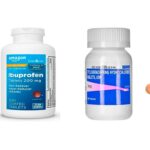Is Cyclobenzaprine The Same As Xanax?

What is cyclobenzaprine?
Cyclobenzaprine is part of a group of medications referred to as cyclical antidepressants. These cyclical antidepressants have roles in the treatment of depression, neuropathic pain, migraine prophylaxis, attention deficit hyperactive disorder as well as potential muscle relaxation properties.
Cyclobenzaprine is FDA-approved as an adjunct to rest and physical therapy to relieve muscle spasms associated with acute, painful musculoskeletal conditions for short-term use. Cyclobenzaprine should be used only for short periods (up to 2 or 3 weeks) because adequate evidence of effectiveness for more prolonged use is not available, and muscle spasms due to acute, painful musculoskeletal conditions are generally of short duration and specific therapy for longer periods is seldom warranted.
What is Xanax?
Xanax is a brand of alprazolam, a medication used to treat anxiety and panic disorders. It belongs to a class of medications called benzodiazepines which act on the brain and nerves (central nervous system) to produce a calming effect. It works by enhancing the effects of a certain natural chemical in the body (GABA).
Xanax is taken by mouth and absorbed quickly by the bloodstream. Some people may first begin experiencing the effects of Xanax within 5 to 10 minutes of taking the pill. Almost everyone will feel the effects of the drug within an hour.
One of the reasons why Xanax is so effective for treating panic is that peak impact from the dose comes quickly. Most people will experience it between one and two hours after taking their dose.
Is Cyclobenzaprine The Same As Xanax?
No, cyclobenzaprine is NOT the same as Xanax. Cyclobenzaprine and Xanax belong to different drug classes. Cyclobenzaprine is a muscle relaxant and Xanax is a benzodiazepine.
Nevertheless, cyclobenzaprine and Xanax are used as adjuncts to rest and physical therapy for the relief of muscle spasms. Side effects of cyclobenzaprine and Xanax that are similar include dry mouth, headache, blurred vision, drowsiness, dizziness, fatigue/tiredness, appetite changes, stomach pain or upset, nausea, diarrhea, constipation, and muscle weakness. Side effects of cyclobenzaprine that are different from Xanax include dry throat and gas.
Can I use Cyclobenzaprine and Xanax?
No, you should never take Cyclobenzaprine and Xanax together because both drugs can interact and produce undesirable side effects. According to drugs.com, taking Xanax together with cyclobenzaprine may increase side effects such as dizziness, drowsiness, confusion, and difficulty concentrating. Some people, especially the elderly, may also experience impairment in thinking, judgment, and motor coordination.
You should avoid or limit the use of alcohol while being treated with these medications. Also, avoid activities requiring mental alertness such as driving or operating hazardous machinery until you know how the medications affect you. Talk to your doctor if you have any questions or concerns. It is important to tell your doctor about all other medications you use, including vitamins and herbs. Do not stop using any medications without first talking to your doctor.





